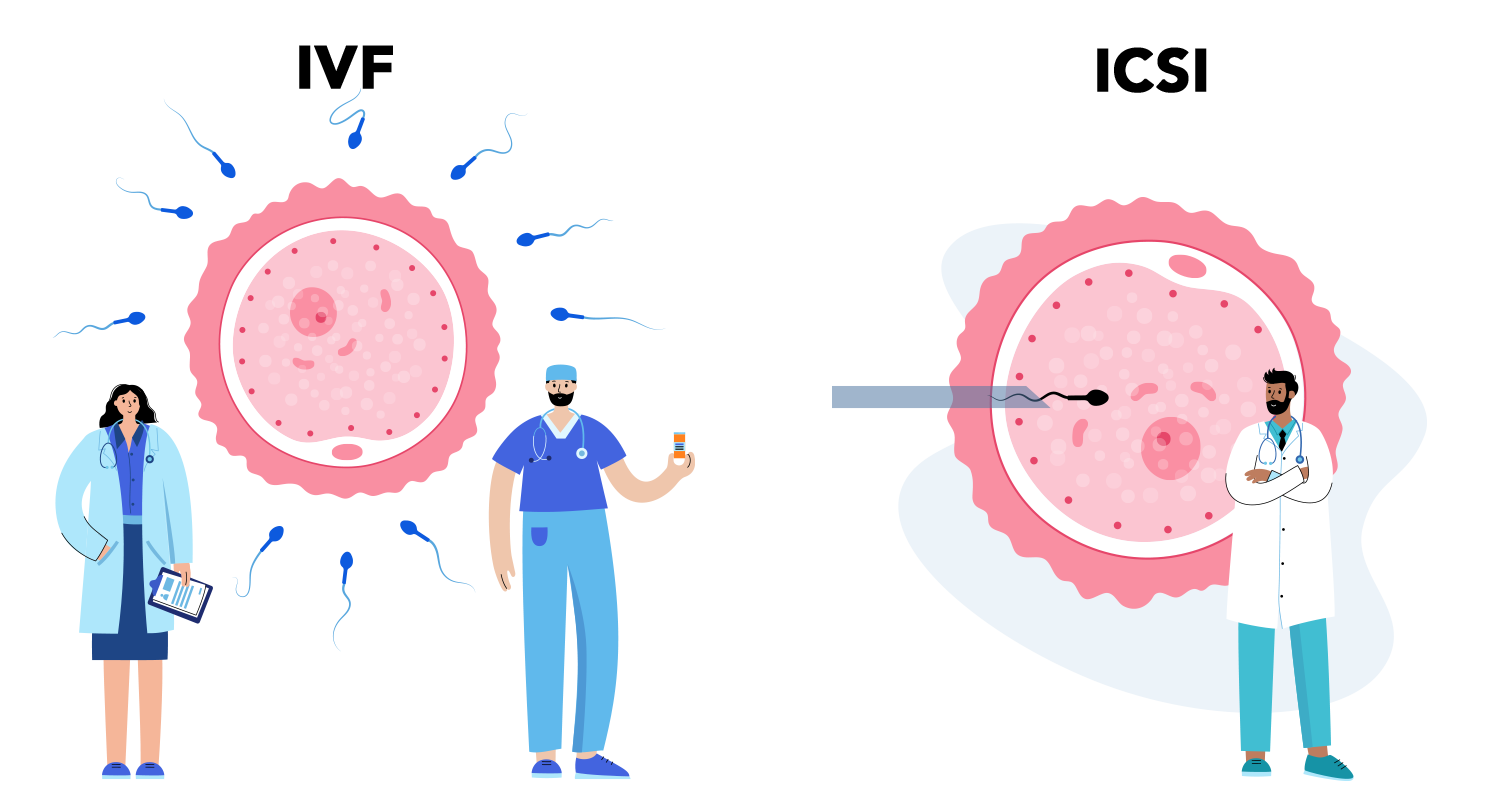IVF treatment has been long in use to fertilize human eggs outside of the body and it is usually the first line of treatment. The key difference between conventional IVF and Intracytoplasmic Sperm Injection (ICSI) is the way the eggs are being fertilised in the laboratory.
Conventional IVF
In conventional IVF, eggs collected from the woman are left in a petri dish with millions of sperm for natural fertilization to happen on its own.

Advantages
- Less invasive form of egg fertilization compared to ICSI
- Less chance of egg damage due to human manipulation error
- Natural selection of sperm – survival of the fittest

Disadvantages
- Higher chance of Total Fertilization Failure
- No control over multiple sperm entry into the egg
- Not useful in couples with male infertility factor
- No information on egg maturity after retrieval
Intracytoplasmic Sperm Injection (ICSI)
However, in ICSI, a single mature egg is subjected to microinjection of a single sperm to achieve fertilization.
This step is very crucial to the survival of the injected egg as it requires a lot of skill of an Embryologist.

Advantages
- Overcome male factor infertility (poor sperm count, motility and/or morphology, azoospermia)
- Higher number of normal fertilised eggs
- Able to perform egg quality assessment
- Ensures all eggs have the chance to be fertilised – no egg wastage

Disadvantages
- May impose higher egg damage, unless performed by an experienced and skillful Embryologist
- More invasive technique compared to conventional IVF
- Additional cost incurred
- Could inherit impaired testicular function of their father
If you are interested in knowing more or have decided to get in touch with us, please call us at
Or send us your enquiry
